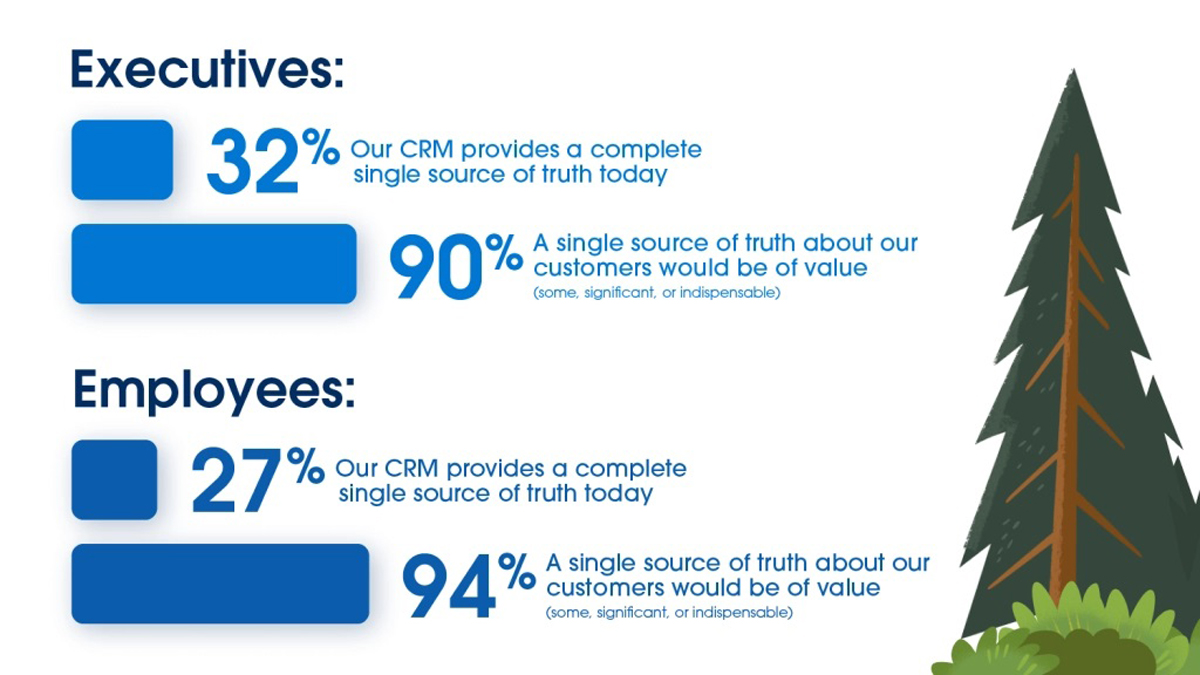New research by Forrester Consulting, and commissioned by Salesforce, surveyed nearly 800 executives and nearly 1,500 CRM users across 15 countries to understand the trends driving CRM technology success and innovation.
The research shows that, to meet ever-evolving customer expectations and more flexible workplace environments, companies are tapping into a new generation of CRM use and strategy that connects data across departments to automate processes, drive personalisation, and support productivity from anywhere.
Business leaders and employees alike look to technology — including their CRM systems — to drive customer growth, business productivity and resiliency, and market differentiation. Despite massive market disruption, however, Forrester found that CRM system usage over the past couple years has remained largely flat, and frankly, isn’t delivering on expectations:
- Less than half of executives noted that their CRM system supports the entire customer lifecycle, from discovery to engagement and retention, but nearly 80% believe it should.
- 73% of executives say CRM use is fragmented at their organisation, with some or all departments each using their own CRM system. 50% of employees agree that since not all departments use the same CRM system, they cannot share information easily across teams.
Organisations who are “doing it right” are leveraging the following approaches for their CRM technology use and strategy:
Cross-team adoption and use:
There are tangible business benefits when CRM systems are used across teams to support the entire customer lifecycle, versus siloed by department:
CRM is increasingly being seen by companies as an engine for growth across the entire customer lifecycle, and they are adapting their strategy accordingly.
Work-from-anywhere flexibility to support more resilient teams:
Fifty-seven percent of executives report struggling to maintain good CX with the shift to remote work because their CRM systems were not well-integrated and accessible.
Employees and executives alike note their top challenges are productivity, information access, and communication and coordination challenges caused by the shift to remote work.
When unified, accessible CRM systems are the central tool in an employee’s toolkit, they are better able to navigate a remote or flexible workplace while continuing to create great CX for customers. And executives can more easily adapt go-to-market strategies to pivot during times of change or uncertainty.
A Single Source of Truth that powers better CX and helps employees to be more productive: A little over a third of executives think their CRM provides a complete single source of truth about their customers today, but 90% think this would be of value. Without this complete picture of a customer, across all departments and inputs, creating exceptional CX is challenging.
Grounded in Trust and Security: Trust and security are now the top criteria for executives when evaluating CRM systems today. And for good reason: customers expect a trusted relationship with privacy and consent.
AI-Powered Process Automation: By 2023, 79% of organisations will be using AI to enable customer/prospect outreach automation and 78% will be using AI-powered automation to relieve employees of day-to-day processes.
Supported by better training for all employees: 53% of employees say they need better onboarding and training for how to use their CRM system, in order to create more value for their organisations.










Discussion about this post